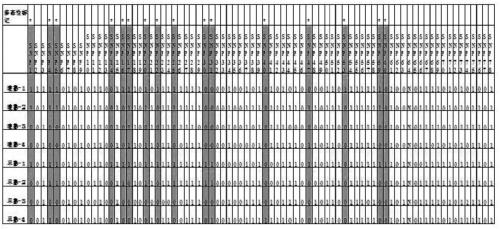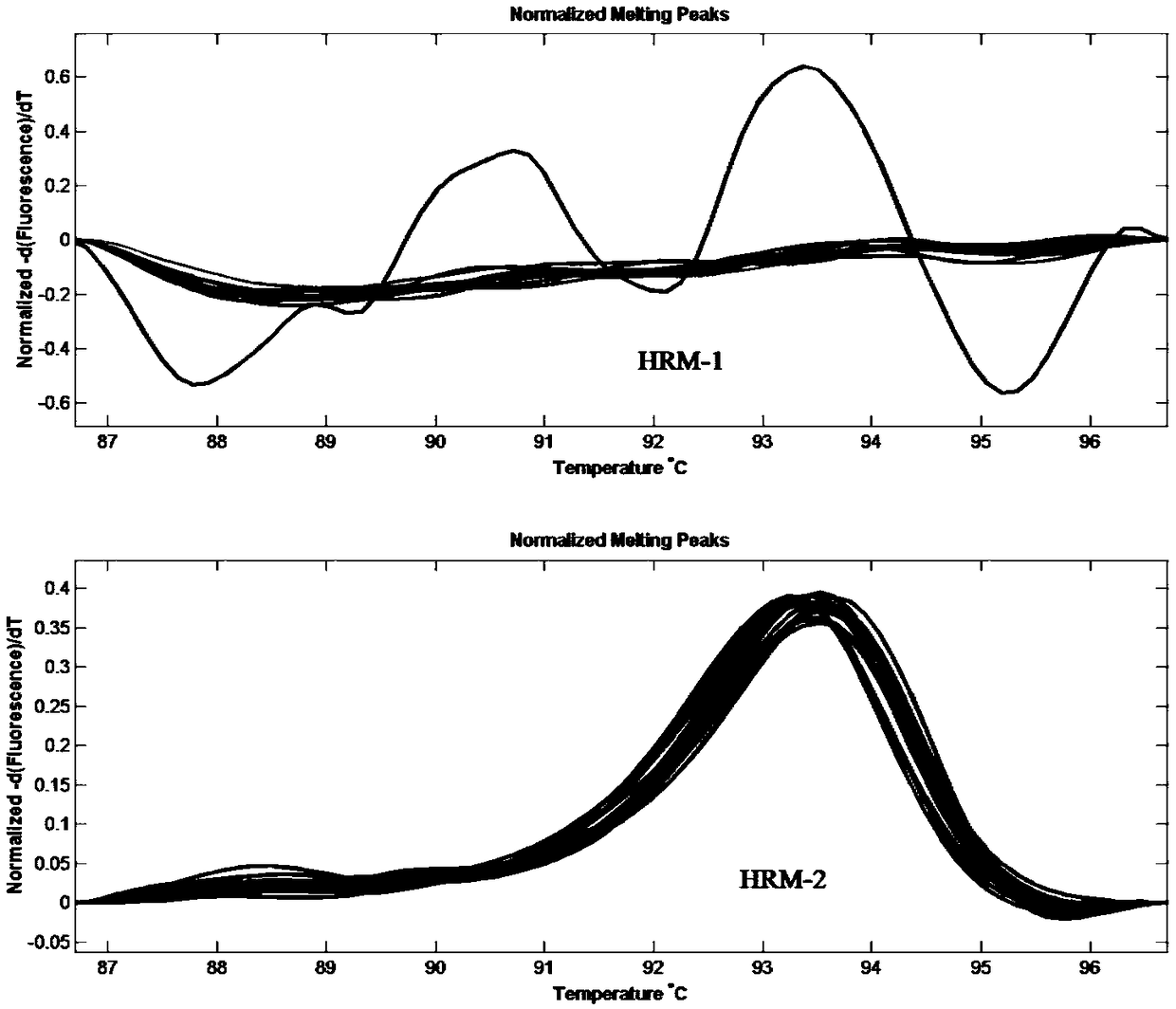Molecular markers for identifying early- and late-maturing characteristics of double-cropping Zizania latifolia and application and obtainment method thereof
A technique of molecular markers and double-crop wild rice stems, applied in the field of molecular biology, can solve problems such as no analysis and identification of wild wild rice stems, and small correlation of variety characteristics, achieving the effect of short research cycle, elimination of interference, and large amount of information
- Summary
- Abstract
- Description
- Claims
- Application Information
AI Technical Summary
Problems solved by technology
Method used
Image
Examples
Embodiment 1
[0043] Example 1: Test materials and classification of early and late maturity
[0044] The following test materials come from Jinhua Academy of Agricultural Sciences, Zhejiang Province, Jinyun County Agricultural Bureau, Lishui City, Zhejiang Province, Yuyao City Agricultural Science Research Institute, Ningbo City, Zhejiang Province, Suzhou Academy of Agricultural Sciences, Jiangsu Province, and Tongxiang City, Jiaxing City, Zhejiang Province. Dongjia Zizania Cooperative, Shengzhou Puhui Vegetable Cooperative in Shaoxing City, Zhejiang Province, and Vegetable Research Institute of Huangyan District, Taizhou City, Zhejiang Province. Samples were collected in autumn 2016, autumn 2017, summer 2018, and autumn 2018.
[0045] Table 1 Variety, ripeness and source of tested samples
[0046]
[0047]
[0048]
Embodiment 2
[0049] Example 2: Population Analysis
[0050] 1) Genomic DNA of Ustilago smut was extracted by CTAB method, the DNA concentration was measured with a nucleic acid micrometer, and the DNA quality was detected by agarose gel electrophoresis. with ddH 2 O was diluted to 100ng / μL and stored at -20°C.
[0051] 2) The DNA of 47 Shuangjizizazaza officinalis varieties whose early and late maturity were determined was sent to the second generation resequencing. The reference genome is the MT-type genome of Ustilago sativa, WGS INSDC: JTLW00000000.1.
[0052] 3) Sequencing data were compared to the reference genome using GATK, SAMTOOLS, and BWA software to obtain SNP data files. A total of 321659 SNP sites were obtained.
[0053] 4) All the Ustilago smut samples participating in the SNP scanning were numbered into three types: A, B, and C, respectively representing the three types of double-season early maturity, double-season medium maturity, and double-season late maturity. By e...
Embodiment 3
[0054] Embodiment 3: SNP site identification
[0055] 1) Among the 5997 screened SNP sites, one SNP site was selected at intervals of 60 as the verification site. At the same time, due to the quality of the reference genome sequencing, it was necessary to exclude the SNP sites in the relatively late contig of the reference genome. A total of 78 SNP sites that could be used for verification were screened out, and relevant primers were designed.
[0056] 2) AS-PCR (allele-specific PCR), AS-PCR uses the principle that the base mismatch at the 3' end of the primer can interrupt the PCR extension program and cause no amplification product. important role. In this example, 78 pairs of AS-PCR primers were designed, all of which are listed in Table 2.
[0057] Table 2 Allele-specific PCR primer sequence list
[0058]
[0059]
[0060]
[0061]
[0062] 3) In this example, 8 DNAs of Ustilago zizania with typical double-season early and late maturity characteristics were ...
PUM
 Login to View More
Login to View More Abstract
Description
Claims
Application Information
 Login to View More
Login to View More - Generate Ideas
- Intellectual Property
- Life Sciences
- Materials
- Tech Scout
- Unparalleled Data Quality
- Higher Quality Content
- 60% Fewer Hallucinations
Browse by: Latest US Patents, China's latest patents, Technical Efficacy Thesaurus, Application Domain, Technology Topic, Popular Technical Reports.
© 2025 PatSnap. All rights reserved.Legal|Privacy policy|Modern Slavery Act Transparency Statement|Sitemap|About US| Contact US: help@patsnap.com



